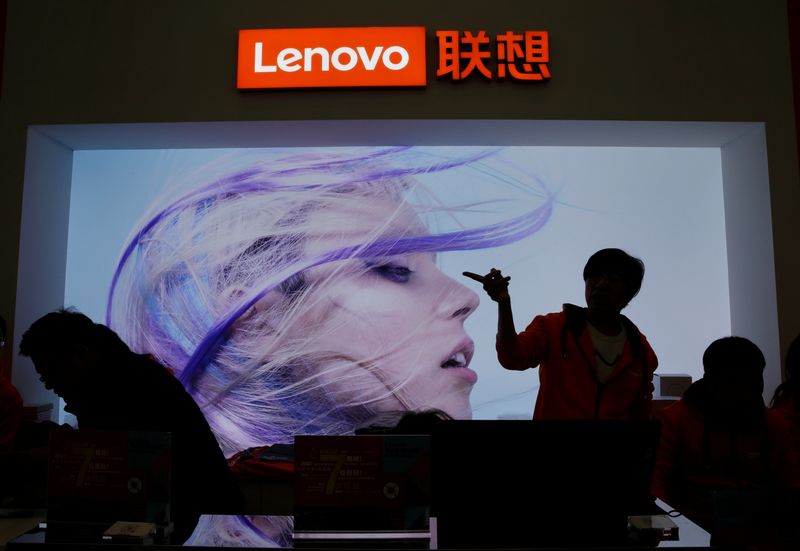BEIJING (Reuters) -Lenovo will further diversify its supply chain and plans to open more manufacturing facilities outside China amid global geopolitical uncertainty, Chairman Yang Yuanqing said.
Lenovo, the world’s largest PC maker, has most of its factories in China, a common situation in the electronics industry that creates potential vulnerability as newly elected US President Donald Trump threatens to impose 60% tariffs on Chinese imports.
Yang told Reuters that while it is too early to predict the policies of the new US administration, Lenovo has an advantage over competitors in hedging such risks through its more diversified manufacturing base and purchasing strategy, as well as balanced regional revenue streams.
While China remains its primary manufacturing base, Lenovo operates more than thirty factories in nine different markets. The company plans to open facilities in Saudi Arabia following a major investment deal with the kingdom’s Public Investment Fund, Yang said.
On Friday, Lenovo reported a 24% increase in revenue in the second quarter of the fiscal year compared to a year earlier. That was partly fueled by growth in sales of computers that can handle the artificial intelligence workload, as the global PC industry showed signs of recovery.
The Chinese technology company reported revenue of $17.9 billion for the quarter ended September 30, surpassing analyst expectations of $16.0 billion, according to LSEG data.
Net income was $359 million, compared to analyst estimates of $331.7 million.
Lenovo’s global PC shipments rose 3% to 16.5 million units in the September quarter, maintaining a 24% market share. Global PC sales across the industry fell 2.4% from a year earlier, according to research firm IDC.
Demand for AI-enabled computers has become a major growth driver for the PC industry, with manufacturers rushing to launch models equipped with specialized chips for artificial intelligence applications.
Lenovo launched its first AI-powered PCs in China in May before rolling them out globally in September. Yang expects AI PCs to make up 25% of Lenovo’s shipments by 2025, rising to 80% by 2027.
Lenovo has positioned itself to capitalize on the AI trend by expanding its AI server and software businesses.

The company’s Infrastructure Solutions Group, consisting of IT solutions including servers, saw revenue grow more than 60% in the September quarter from a year earlier, driven in part by strong demand for servers that power AI workloads in data centers process.
The Solutions and Services Group, which includes cloud-based software offerings for enterprise customers, posted revenue of $2.2 billion, up from $1.9 billion a year earlier.


